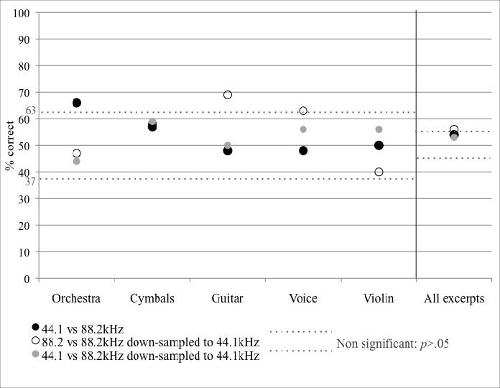upstateguy
Headphoneus Supremus
- Joined
- Dec 20, 2004
- Posts
- 4,086
- Likes
- 185
Aye, but you are claiming there is no difference.
se
The burden of proof is on those who claim to hear a difference. Those who do not hear a difference don't have to prove anything.
You're skirting the issue "MA".
Your claim was not that you didn't hear a difference.
If you didn't hear a difference and said "I don't hear a difference between 24 bit and 16 bit" it would be accepted as just your subjective observation.
But that wasn't the case, was it?
Your claim, to refresh your memory, was "Take a 24-bit file. Convert it to lossless 16-bit / 44.1 kHz. Sounds exactly the same. Always."
Then you go on to say, "Those who do not hear a difference don't have to prove anything" and that would be true until they post it as a claim, like you did.
It's funny that all of a sudden, the burden of proof falls elsewhere, when you have to prove what you're claiming.
RE: magical dragon analogy
My analogy is just as ridiculous: "a 45rmp record "sounds exactly the same" as a compact disc. Always."
The willingness to accept either statement without proof is the hallmark of a Subjectivist.




